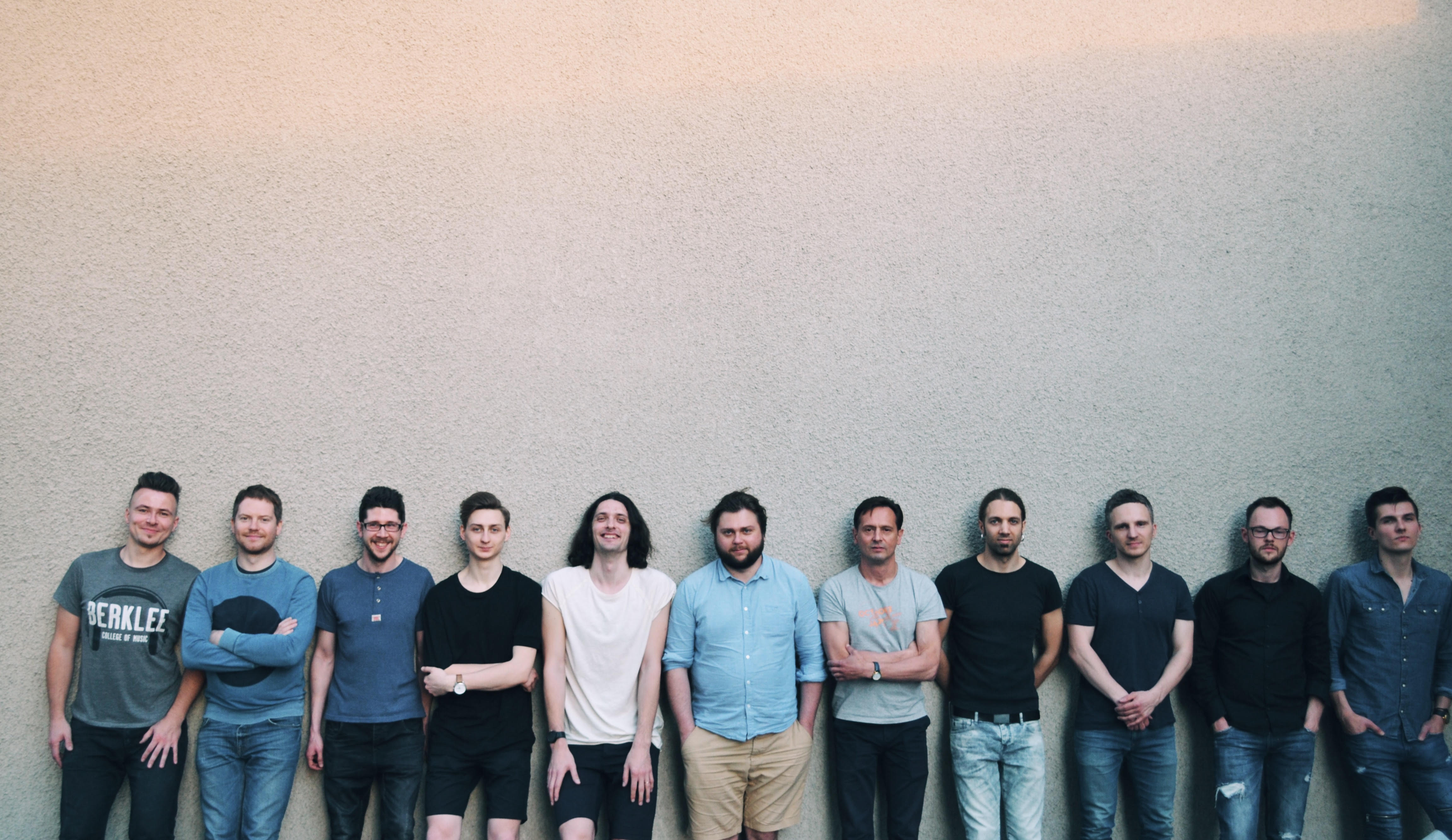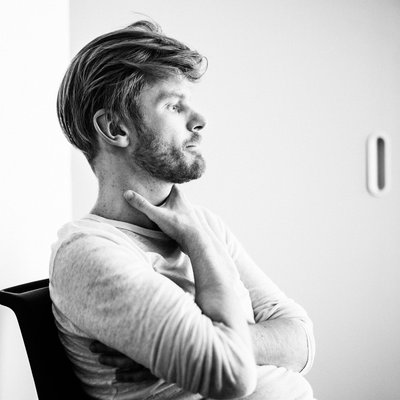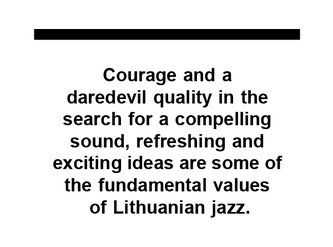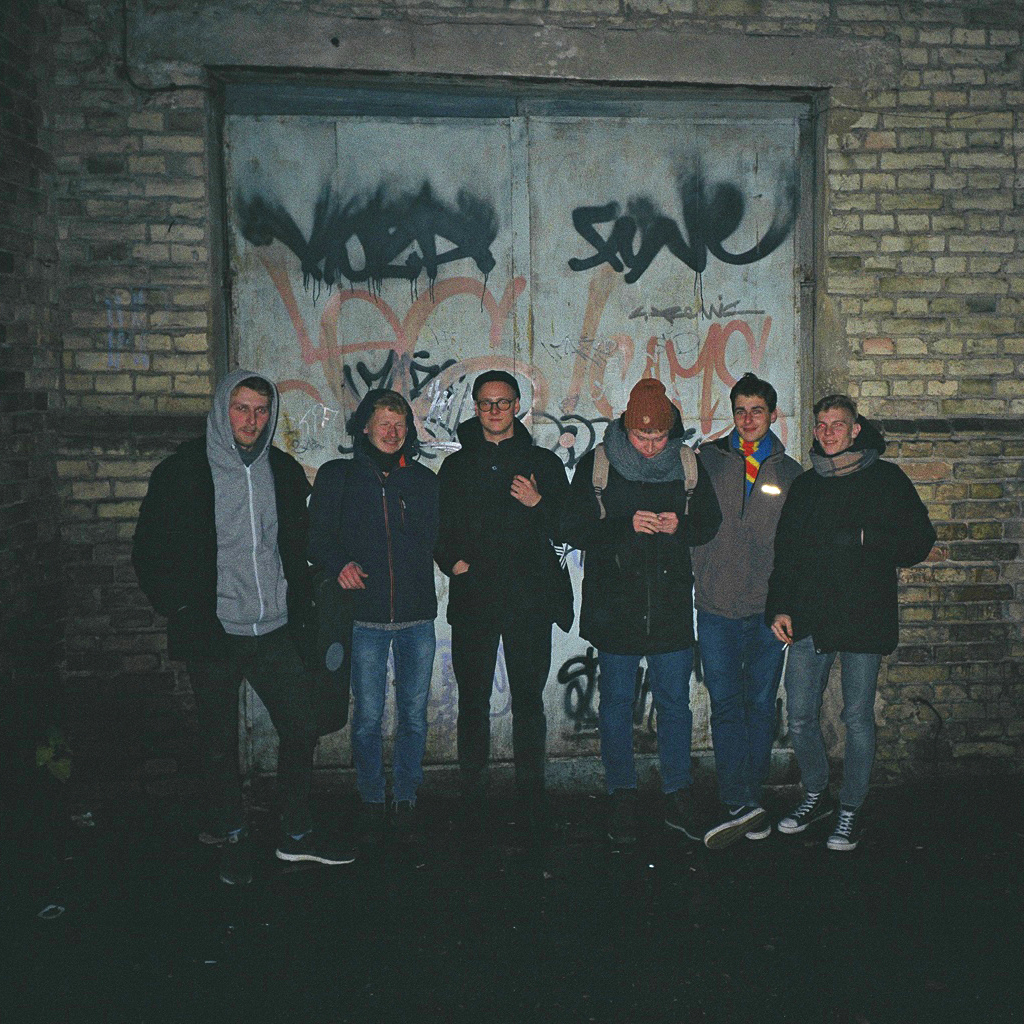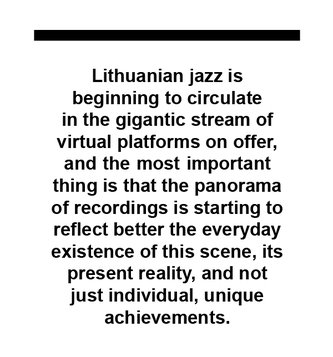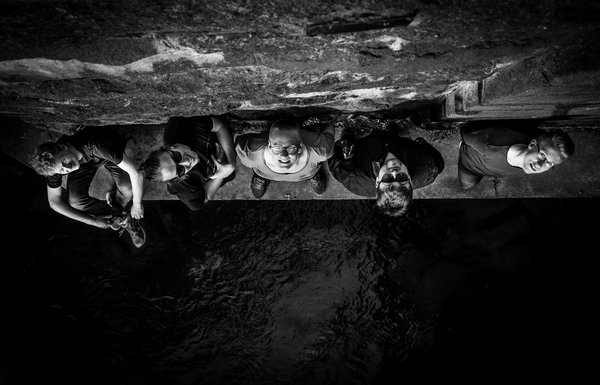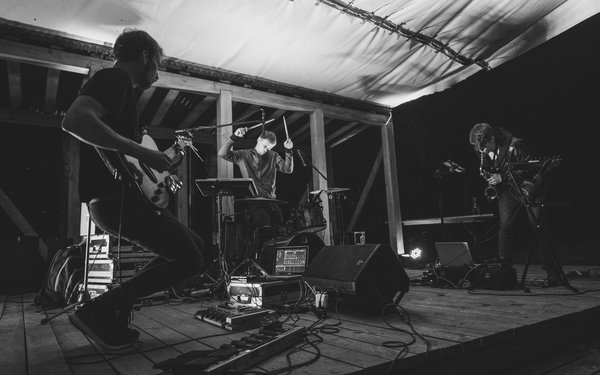Laima SLEPKOVAITĖ-BUTĖNIENĖ | The Brave New Lithuanian Jazz
Interesting processes are now in train in Lithuanian jazz. ‘Breakthrough’ may be too fanciful a word but a certain leap in growth is discernible. It’s expressed by the rise in the quantity of musicians, the more intensive concert life in the larger towns, the more frequent visits abroad of local performers, the richer panorama of styles… And perhaps the clearest proof of the demographic explosion of improvisational music in our country is the recordings that are being released.
Several years ago, the saxophonist Vytautas Labutis talked in an interview about the potential of the record industry in a small market (like Lithuania, for example) and said that perhaps the only way to liven it up would be to create a common area for the music business with the two other Baltic states of Latvia and Estonia. And for many years it seemed impossible to create a need for the production of recordings in a small country, and that making albums was a matter for individual nightingales who could not not sing…
It was in 2017 that more than a dozen high-quality, original albums appeared, most of which were recorded by young jazz musicians. A successful year? In 2018 new work has been released by Džiazlaif (debut), Mindaugas Stumbras (debut), Veronika ChiChi (debut), CinAmono (debut), Baltic Jazz Trio (an album recorded by veterans), the Lithuanian Jazz Orchestra and Domas Žeromskas are also working on recordings (these will also be debut albums!), that is to say that the tempo of recording work is intense and quick-moving, and it’s being supported by the younger generation, consumed by the desire to make their mark. It’s a great pity that there were no such tendencies a decade ago: because their work wasn’t recorded and properly documented, the work of Magic Mushrooms, Riot, the duets of Juozas Kuraitis and Tomas Razmus, and a whole host of other worthwhile efforts have disappeared into the ether. Today’s young musicians active on the Lithuanian jazz scene are no likely to repeat the mistakes of their predecessors…What happened? Where did that come from? Perhaps, with the development of technologies, releasing a recording became simpler? I asked the bass guitarist Domas Aleksa, who last year came out with his third album, whether from his debut in 2012 up till today releasing recordings has become more accessible to musicians. No, it hasn’t. Andrei Polevikov (who also has three albums in his discography), on hearing a similar question, presented information to show that the opposite was true: in certain aspects releasing recordings has become more difficult with an increase, due to inflation, in the cost of certain services.
There doesn’t seem to be any external tangible incentive to make albums, no decent studio has announced its willingness to give any kind of discount for recordings and even the support of the Lithuanian Council for Culture amortizes the losses incurred by the applicants already committed to recording music rather than actively encouraging them. Paradoxically, in the absence of any clear mechanism to stimulate the release of recordings, the making of albums is intensifying.One of the motivating factors could be the fact that the launch of a new album attracts attention, provides an opportunity for a concert tour, and serves as a business card for the collective. However, amongst the recordings put out over recent years we can find those that don’t necessarily accurately represent a group’s activities.
Sheep Got Waxed distils its essential material in its albums and later on the road in concerts it goes on to increasingly modify it and distance itself from the primary version. In the last two recordings by Domas Aleksa there is a plethora of technically manipulated sounds and for that reason the versions in live performances are markedly different from those captured on the recordings. Andrei Polevikov’s programme from the collection Ethnic Mood can be (and has been) recreated in concert but in its content and number of participants it is not orientated to an intensive tour of clubs, and so the thought occurs to me that the album was of greater concern to the author than the opportunity to explore his new programme on stage. So, an album – as an instrument for the dissemination of music, one which requires a considerable outlay and eats up a lot of energy – for some musicians is put together and regarded as a completely autonomous work of art with its own specific purpose.
In 2017 one of the culminating expressions of this concept was Giedrius Nakas’s No Fear, Full of Love. The idea in fact was fearless and could even be called utopian – a young pianist from Lithuania went to New York and recorded a collection of his own original compositions with Justin Brown, Ben Williams, Troy Roberts, Caleb Curtis, Alina Engibaryan and Vanisha Gould at one of the best studios there (the Acoustic Recording Studio in Brooklyn). To bring together an identical group for a concert tour is a mission that is more difficult to manage – at least at present, so this album is more a reflection of the musician’s visions rather than of his everyday concert life.On the local scene Giedrius Nakas also has access to great rhythm and wind instrument players, as well as vocalists, in order to disseminate his work, but a recording with prominent American musicians is a different ball game. Firstly, by gathering around him such an illustrious company, the young musician painted himself into a corner and there was nothing for it but to reach for the sky – a useful self-motivating experience, a leap out of his comfort zone. Secondly, he created conditions in which his compositions would sound authentic, with him melding with the performers whose musical medium is the ideal of his sound and the essential source of his inspiration. Thirdly, in sitting down to play with Brown and Williams, Giedrius Nakas condemned himself in comparisons firstly with Gerald Clayton and other American pianists who play with the same rhythm section. He doesn’t avoid this comparison and isn’t afraid of it because there is no reason for a musician who is confident in his identity and creative intentions to be afraid.
The great achievement of this venture and its message is that a Lithuanian pianist can step into an already densely populated, popular stylistic niche and take part in a dialogue on an equal-footing with other musicians, create original music in that niche – without the use of Lithuanian folk instruments and polyphonic Lithuanian folk songs – employing a cosmopolitan contemporary jazz language, relying only on his own skill and individuality.Even though New York wasn’t stormed by it, another debut recording of 2017 by the phenomenon that is Reinless would be perfectly understood there, one that resonates with the directions taken by new contemporary fusion. The group’s leader is Jievaras Jasinskis – a composer who is on his way, on a journey of self-fulfilment and self-discovery. At present the public knows, and so does he, that he is capable of leading a collective of any kind, to infect them with his energy, to create an amazing atmosphere while performing and arranging orchestral scores. Musicians are still sometimes surprised when they come across the skill of Jievaras’s instrumentation, when they see that their parts are set out in a way that is convenient for them and at the same time are technically precise, a good fit for their instrument and the abilities of the person playing that instrument. We would even dare to affirm that this composer, knowing the musicians he works with, creates work for each of them personally on the Ellingtonian principle. Reinless is a compact mini-orchestra, an octet, Jievaras Jasinskis’s creative laboratory, taking the ideas arising there into other – larger – ensembles: the Kaunas Bigband led by him, the select all-star Lithuanian Jazz Orchestra, or even a chamber orchestra. His debut album Sus Signal presents a very small slice of the spectrum of his wide creative activity, but it wasn’t the author’s intention to paint a detailed self-portrait. First and foremost, the collection showcases Reinless as a tasteful, modern ensemble of remarkable energy, one which in concerts displays ten times more energy that it is possible to fit in on a CD, and one from which it is normal to expect surprises.
Another group to debut in 2017 was the sextet Brave Noises, which made the unexpected its speciality: they are moving in a very interesting experimental direction, employing a very wide range of tools, but they’re doing that in a well-thought-out and focussed manner. For this reason, their work leaves a consistent impression of a narrative that draws the listener in, without any signs of eclecticism. As with Reinless, this is an ensemble led by a leader-composer. Even though the ensemble is made up of very distinctive personalities who have the right of voting and even veto (can it be any other way in a jazz group?), Mantvydas Leonas Pranulis is precisely the person whose choices, ideas and compositions are decisive in achieving a common sound and direction of movement. He is able to successfully use his talent as a composer in electronic music, in composing for theatre and cinema, while in the field of jazz Brave Noises is far from being his only outlet, although at present it is perhaps the most listened to and noticed – in particular after 2015 when this collective was awarded the Vilnius Jazz Young Power Grand Prix. Courage and a daredevil quality in the search for a compelling sound, refreshing and exciting ideas are some of the fundamental values of Lithuanian jazz. For this reason, Brave Noises, in fact, lost the opportunity to play the role of insurgents and to win for itself a piece of the stage, climbing out of the underground… All of this strange music which disregards moderation in its search for originality is universally supported and propagated by the Lithuanian jazz community – it has no chance of remaining hidden away.Putting aside the provocative name, Brave Noises are more protective of their listeners nervous system than, for example, their colleagues Džiazlaif, who in March of this year shook up Lithuania’s musical reality with their debut recording. They stun and do that by using out-and-out physical force: with huge dynamic contrasts and a force of sound which it is hard to believe is possible to get out of only six musical instruments. In contrast to the earlier mentioned projects, this is grounded in collective creativity: Kazimieras Jušinskas, Arminas Bižys, Danielius Pancerovas, Paulius Vaškas, Aurelijus Užameckis and Ignas Kasikauskas are all composers and they put their opuses into a common pot. All the members improvise, and their sound can be said to be connected more with the aesthetics of free jazz but the most impressive unexpected effects achieved by them are in fact through the composition which is witty, smart and, of course, completely free of dogma – a manifesto of young people who have forgotten to consult a textbook.
In the panorama of new albums there is also news of another kind. Veronika ChiChi’s A Singer of a 1000 Faces is not only a beautiful presentation of a technically proficient and expressive soloist but also generally speaking the first album in a classical format by a vocalist-leader of her own ensemble in Lithuania. It’s hard to believe but a quite large choir of trained voices had not yet up to that time enriched the panoply of Lithuanian jazz with a work like that. The double album Two Different Sides by Liutauras Janušaitis was also the first such release in the history of Lithuanian jazz, with one of the discs (Dark Side) recorded with a fusion group and the other (Bright Side) with saxophone and chamber orchestra. The format is a one-off without any chance of it being further developed, rare even in a world context. The deluxe recording was issued as a CD and on vinyl. Vinyl continues to be popular in Lithuania, as it is in all of Europe, so this medium is being used more and more: Sheep Got Waxed launched their second work Pushy in CD and on vinyl, whereas Liudas Mockūnas’s Hydro is only out on vinyl… By the way, the latter album also contributed something to the ‘first time series’ – it’s a saxophone solo, the whole album being made up of a single person’s monologue. Of course, Mockūnas is a veteran of the Lithuanian jazz scene and a big star, no longer a debutant, but with this experiment he stepped into a territory with which he had up to that time not yet been familiar or visited… He still manages to do that.On the one hand, durable and long-lasting vinyl is gaining ground in the record industry, on the other hand – the opportunities to disseminate music presented by the ephemeral and intangible internet are being employed. All the popular listening platforms: Spotify, iTunes, Amazon Music, SoundCloud and others are, of course, tools, most often used to popularize albums released in a physical form, but sometimes they become also the main and only form of the life of a collection – this was true in the case of Giedrius Nakas’s first set of recordings, created quite a while before No Fear Full of Love, this is the road taken by The Schwings, a group cultivating music in the early styles of jazz, putting out recordings virtually and one after another – and in this way communicating with their audience and keeping their finger on the pulse by providing up-to-date information about themselves on Facebook.
All of that means that it’s becoming a little simpler to hear Lithuanian jazz. It’s beginning to circulate in the gigantic stream of virtual platforms on offer, and the most important thing is that the panorama of recordings is starting to reflect better the everyday existence of this scene, its present reality, and not just individual, unique achievements. The release of an album is a large-scale effort, requiring not just talent and good visions, but also a strong will, managerial input, time and material resources. But, despite all that, performers nowadays are not putting off this work until the moment they feel themselves to be mature enough and have an idea worthy of being preserved on a stone tablet. They step into a studio whenever they have the opportunity and a batch of new music. And our ears are regaled with the amazing fruits of this healthy bravery.
Translated from the Lithuanian by Romas Kinka
